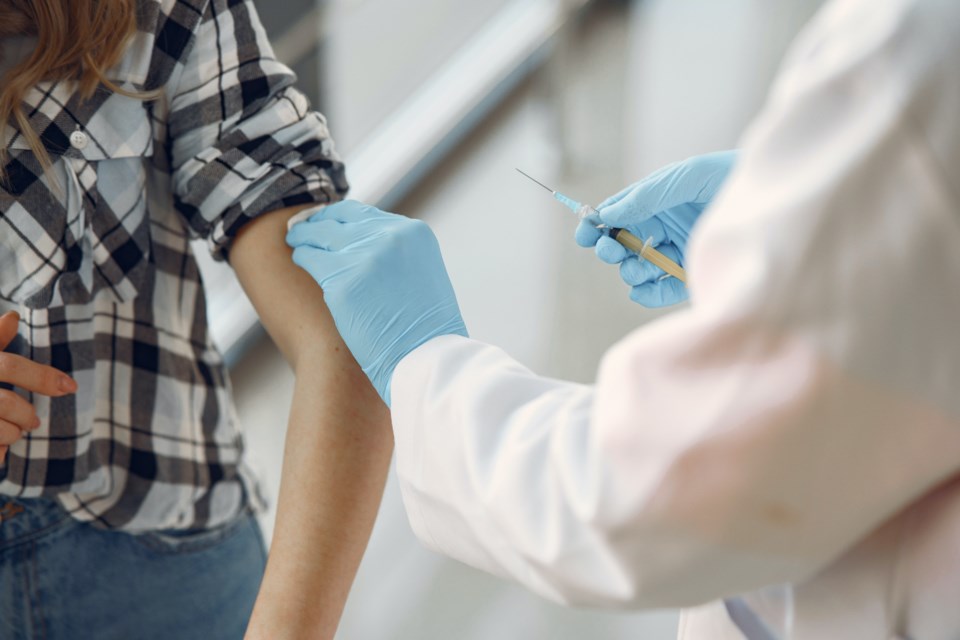It’s been nearly three weeks since Health Canada approved the Pfizer-BioNTech Comirnaty COVID-19 vaccine for children as young as five years old and, in just two weeks, more than 10,000 kids in Simcoe-Muskoka have received the shot.
Locally, the Simcoe Muskoka District Health Unit is approaching the end of the second week of its campaign to vaccinate children between the ages of five and 11. To date, the health unit has provided 10,353 first doses to children, says local medical officer of health Dr. Charles Gardner.
“There are also 3,283 appointments for children five to 11 and we currently have space for others to book,” he said during his weekly media briefing on Wednesday. “I encourage all parents of children five to 11 years of age, and all people 12 and up, to book and receive vaccination.”
Given the majority of recent outbreaks are among those who are young and who only very recently became eligible for vaccination, Gardner said he supports the addition of school-based rapid antigen testing, given the high incidence of transmission and the large number of outbreaks at schools in the region.
“The province is proceeding with providing kits for rapid antigen testing on a volunteer basis through schools to children over the holiday break in order to assist in the identification of cases and reduce transmission, and help make schools safer upon return," he said.
The local health unit will also be participating in providing rapid antigen testing throughout elementary schools in the region, which Gardner anticipates will be in place by the time children return to school in January following the holiday break in an effort to avoid further outbreaks and to keep schools safe.
“It would be voluntary for children to participate in this, and it’s meant for those who don’t have symptoms or a contact history of a known case," he said.
"For those who do, they should be going to an assessment centre to get PCR testing instead of the rapid antigen testing," Gardner added. "For those using the rapid tests, if they have a positive test, they would need to go to an assessment centre for a confirmatory PCR test and (would) need to be isolating and not going to school in the interim.
“It would also help a great deal to safeguard the school environment to have as high a vaccination coverage as possible for all children attending school."
The health unit is also holding drop-ins for first and second doses at any of the region’s community vaccination centres.
During this week's media briefing, Gardner also noted the region’s incidence of COVID-positive cases among individuals who are not vaccinated is seven times higher than those who are vaccinated, while the hospitalization rate is 15 times higher compared with people who are fully vaccinated.
“Clearly, it’s very important for people to get vaccinated to have that level of protection. People also need to do other things to reduce the risk, but the single most important thing you can do is to get vaccinated,” he said. “When we look at the vaccination status of our cases over the past week, 39 per cent were among those fully vaccinated.”
Gardner said health officials expect that number to go up as the province continues to provide vaccination to the public and it continues to get closer to the goal of 100 per cent of the populace being fully vaccinated.
“As you get closer to that goal, you are going to see some breakthrough cases, and they will make up an ever larger portion of the cases. It is driven by the dynamics of the numbers and the proportion of people who are vaccinated and those who are not," he said.



